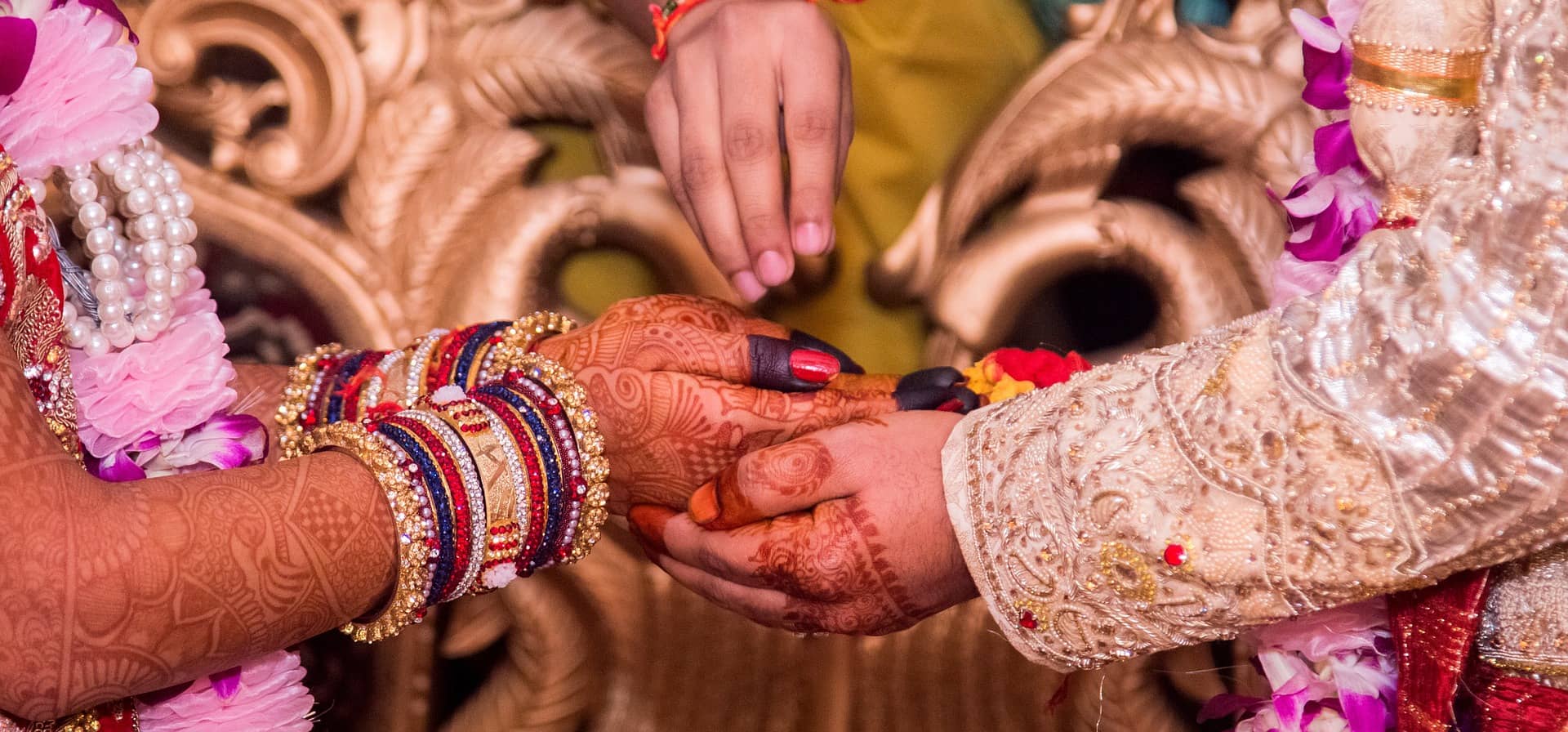Leaning down, I whispered Tara's name for the first time into her tiny pink ear. Full of milk and relaxed from her recent oil massage, Tara did not stir. My mother and I tied a black cord around her waist to ward off the evil eye.
Tara had received her name.
In the Nair community to which I belong, the baby-naming ceremony, called Namakarana, is simple and brief. Family members are welcome to attend if they can, but their absence does not detract from the ceremony. Although I missed the presence of Tara's father (who could not come because he was in another city) and my two siblings, the small, private ritual was also infinitely satisfying.
The details of the ceremony can vary depending on the community, according to Hindu custom, but it usually takes place in a child's first three months. After the puja, or worship, of Ganesha, the priest or other officiant usually does a so-called kalasa puja. (Kalasa is a long-necked brass vessel filled with water scented with saffron, cardamom powder, and edible camphor.) The priest then chants mantras to invoke Varuna, the god of water and rain. Since Varuna is the god of all rivers, including the holy Ganges, this god's blessings sanctify the water in the kalasa. The priest or officiant also invokes gods like Shiva, Durga, Lakshmi, or Vishnu, depending on the family's wishes.
Handfuls of uncooked rice are spread on a banana leaf, and the new mother writes the baby's name on it. Then she lays the baby on the leaf and bends down and whispers the baby's name three times into its right ear. The other family members take turns doing the same. Someone ties a black thread around the baby's waist. After a final aarti, or prayer, all the guests receive some of the sanctified water from the kalasa. The remaining water is used later to bathe the baby.
"Originally, the Namakarana took place on the 10th day after birth," says T.V. Krishnamurthy, a Hindu priest who often performs pujas at the Chinmaya Mission in Los Angeles. "An infant was supposed to start hearing on that day, hence the ritual of whispering its name in the ear," he says. Mr. Krishnamurthy charges no fees for the 10 to 15 Namakarana ceremonies he performs every year in the Los Angeles area.
Baby-naming day is usually also that of the Jatha Karana, or the day the child's horoscope is drawn up. "In the past, people did not always write down the time and date of their baby's birth," Mr. Krishnamurthy points out. "Preparing the horoscope on the 10th day ensured that those important details were not forgotten. Nowadays, of course, parents get the baby's horoscope done by computer on the day of the birth itself," he laughs.
Not all Hindu parents living in the U.S. name their children at such large, formal events. "My son Sahil's naming ceremony was done at home with a few family members," says Madhavi Ghayal of Philadelphia. "It was a 10-minute event in our living room when he was 6 days old." Sahil, with a red kum kum powder dot on his forehead and a new vest decorated with a swastika, the holy Hindu symbol, was placed on his mother's lap. His aunt held up a rolled-up banana leaf, placed it near the baby's ear, and spoke Sahil's name three times through the makeshift tube.
The family also believes that a baby's fate is written on the sixth day. "After we ate a special all-vegetarian dinner, my mother-in-law left a paper and pen, along with a lamp and a sweet dish, under my son's bassinet for Vidhdata, the goddess of fate, to come at midnight and write him a sweet future," says Ms. Ghayal.
A decade ago, Rachna Sharma from Lawrenceville, N.J., found it hard to locate a priest to do the naming ceremony for her son, so the family did it at home. After worshipping at their family altar, Ms. Sharma went around the room touching the feet of her elders and asking for their blessings. Sitting with her son in her lap, Ms. Sharma accepted the new clothes that her sister-in-law gave the baby. "Until the 10th day, the baby is wrapped up in a blanket. It is when the aunt brings the clothes that the baby wears them for the first time," Ms. Sharma points out. "It is a symbol of the family's protection."
But for those who are inclined to venture outside their homes to name their newborns, Hindu temples all over the U.S. now routinely offer Namakarana rituals as part of their services. Some even list them, with prices, on their websites. For example, one will perform the ceremony at the temple for $51, but charges $101 to perform it outside the temple.
When the naming ceremony originated several centuries ago, ancient Hindu society used the ritual to initiate infants into a community of family and friends. Today, despite the technological glitz of computer horoscopes and temple websites, the ceremony's message at heart remains simple. It is still a way to tell a newborn child, "This is your name, which makes you uniquely who you are. Welcome to the world."

